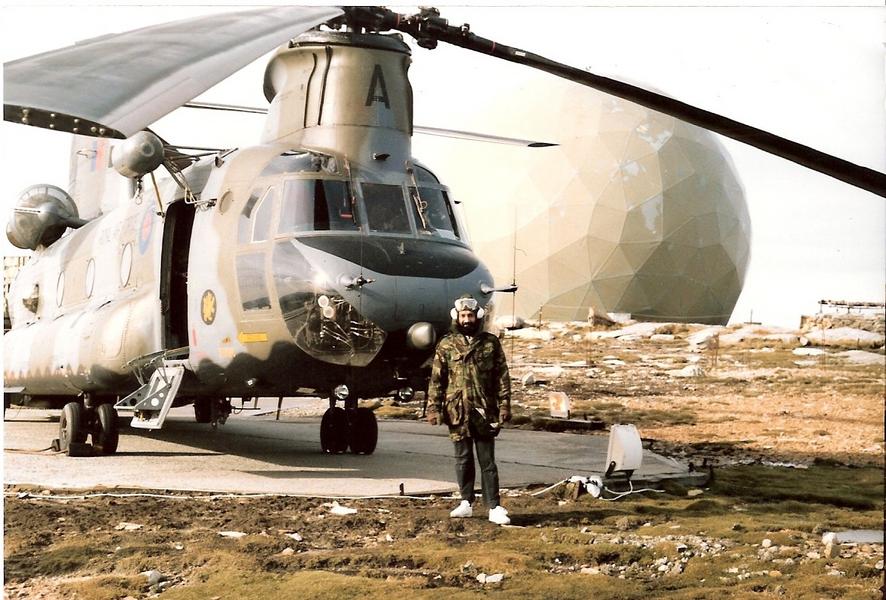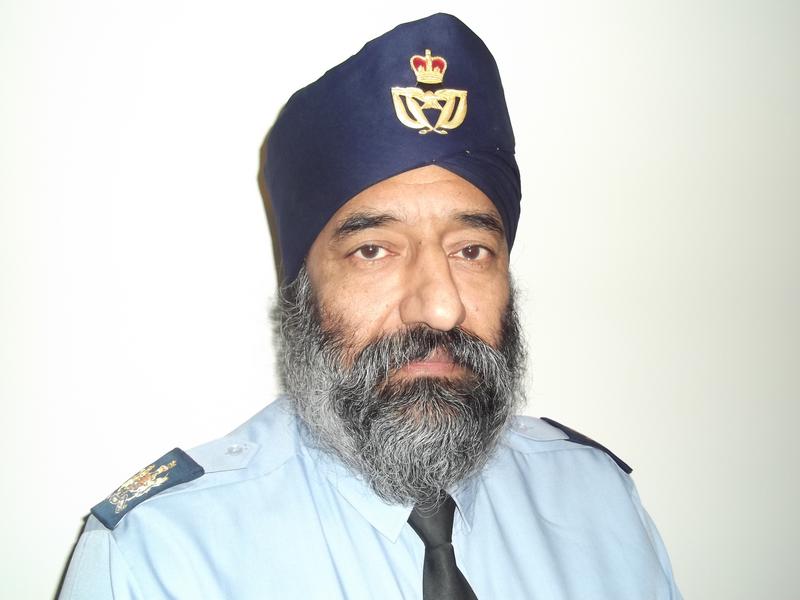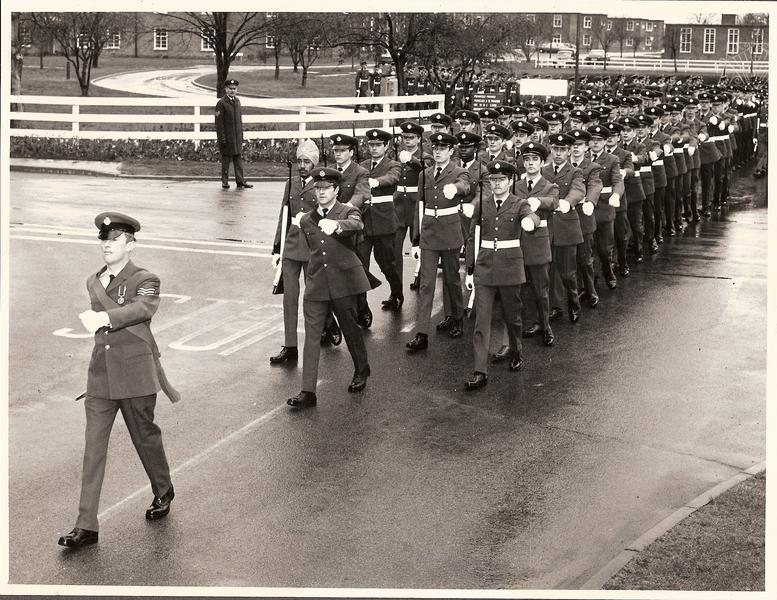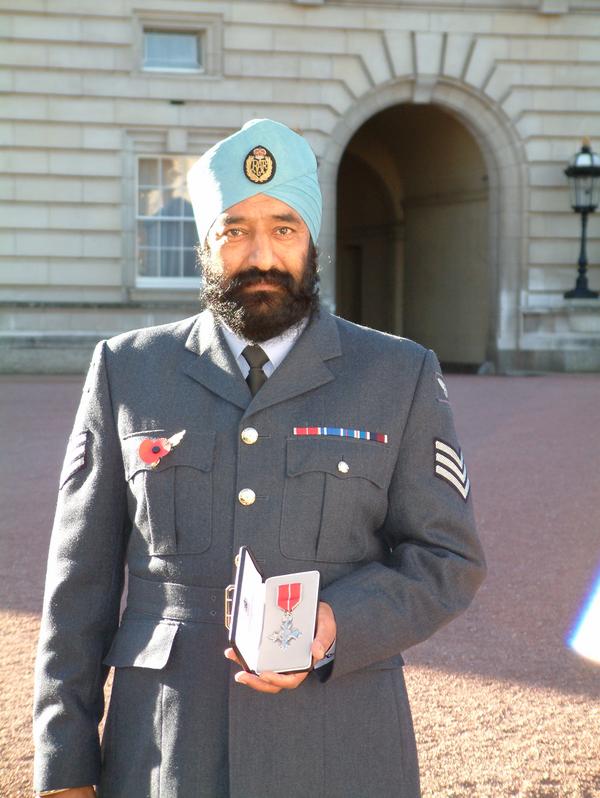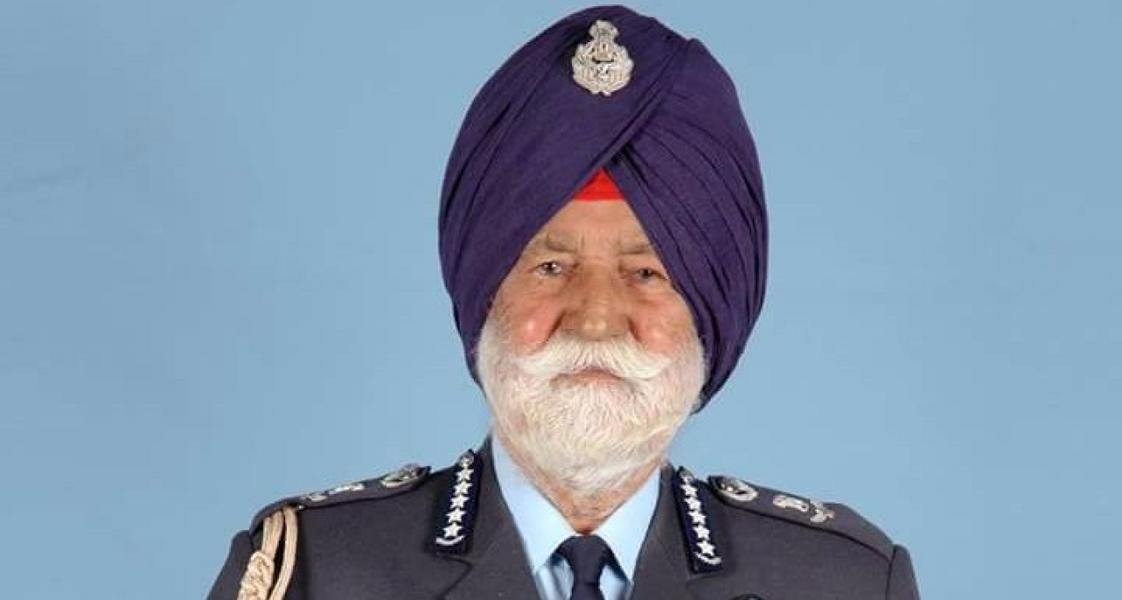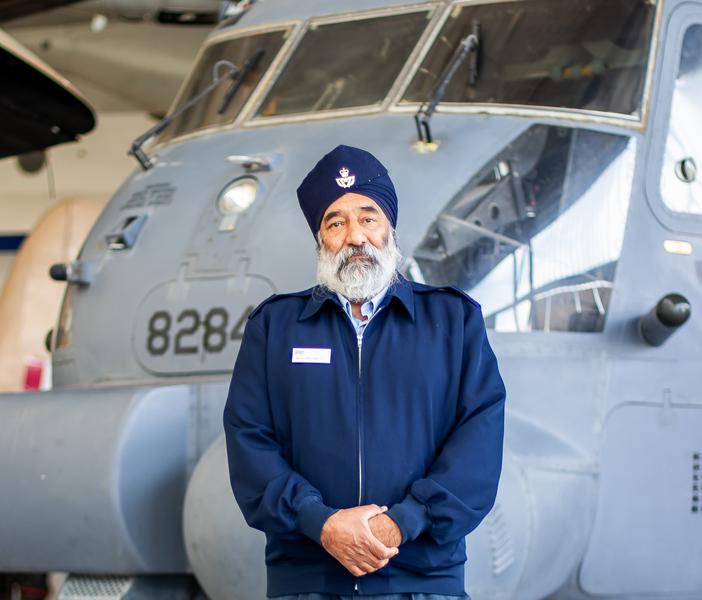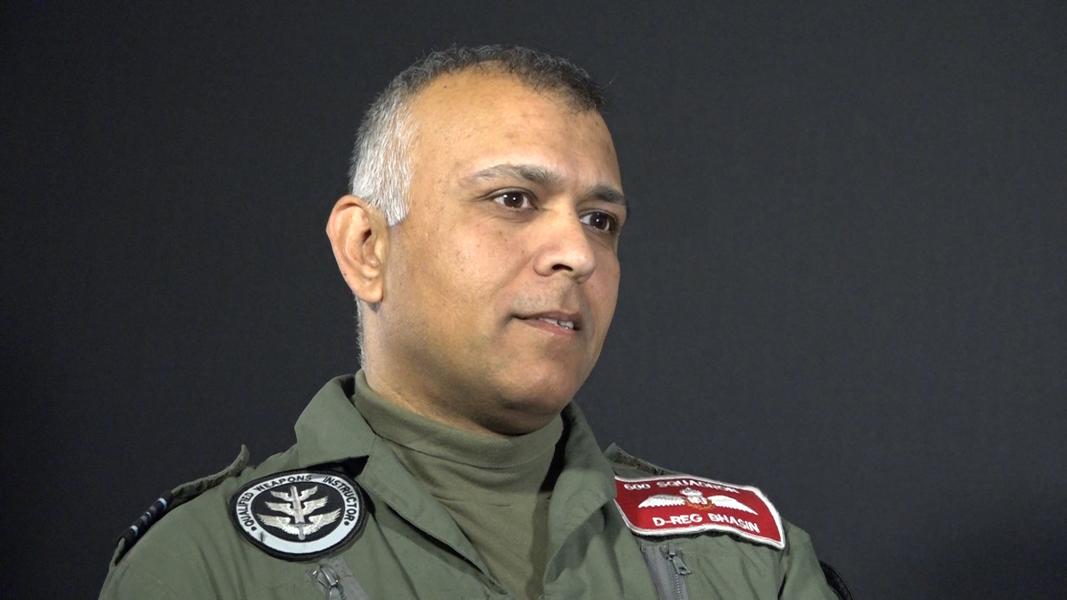where they eventually settled
after about a year in Southall in London,
there weren't that many Asians in the area anyway,
and then when I went to my school,
we were still a minority,
so, it wasn't such a big culture shock.
So, because of that,
I think it was easier,
if you see what I mean.
It was opposite to when I was in the cadets, but,
I was sort of expecting
to be in a white male organization at the time,
so, it wasn't so much of a culture shock,
to me, I think personally.
And, I think it's the attitude you take, you know,
if you're aware that you're gonna go into an environment
which is gonna be different,
then it's not so much of a culture shock, I think.
My first unit, you know, when I got posted to Halton,
there was a small group of us.
I then got posted to Gutter Slowes exactly the same.
Then over the year as the Air Force shrunk,
due to defense cuts and things like that,
I saw those numbers come down to the point
where I almost turned up at an RAF base,
which is about 5,000 strong,
and I was the only BAME person there,
the only minority.
So, you know, I've seen it change to the opposite,
and then obviously now,
we're trying to attract more people into the Air Force
who reflect society,
and the numbers are starting to go up again.
So, I've turned up at RAF Wittering last week
and there's about a dozen of them there,
you know, because I had a quick meeting with them
to say, look guys, you know,
I can use you to try and promote
BAME communities in the Air Force,
you know, to actually go out and talk to other people
to sort of say, we do serve,
you know, if you've got any questions ask us
and we'll tell you what our story is.
